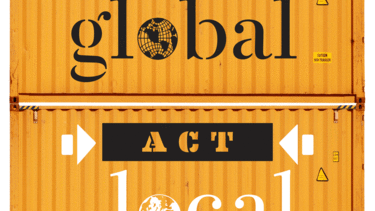All Insights Articles
Is There Opportunity in Global Complexity?
Yale’s David Bach explains how to gain an edge by effectively navigating the complicated global landscape of differences in cultural, political, and regulatory norms.

How Do Multinationals Keep Up with Globalization?
McKinsey’s Dominic Barton describes how firms can develop the agility for a faster-paced, more connected future.

How Do You Build a Team Culture in a Global Company?
Rajeev Dubey ’82, president of human resources at Mahindra & Mahindra, on developing leaders with the mindset to think globally and creatively, while fostering great teamwork.

How Do You Make a Life in the Shadow of War?
Frequent conflict, violence, and displacement mean that the people of eastern Congo, a resource-rich region in the center of Africa, live on an average of $200 a year.

How Can an Entrepreneur Survive in Russia?
How one Russian entrepreneur built a business through the turmoil of the transition out of communism.

Can Korea Turn Itself into a Global Pop Juggernaut?
Two decades ago, with the aim of diversifying its economy, Korea set its sights on supplying pop culture to the world.

What Does Globalization Look Like in Eastern Congo?
Photographer Richard Mosse uses an unusual combination of technologies to tell the story of the conflict in eastern Congo.

Portrait of a Warlord
Photographer Richard Mosse meets Ntabo Ntaberizi Sheka, the notoriously violent leader of the Nduma Defense of Congo.

Is Cybercrime Inevitable in a Connected World?
Deepak Jeevan Kumar ’10 of General Catalyst Partners, who invests in cybersecurity ventures, on the evolution of cybercrime and how to combat it.

Can You Work without Silos?
Gillian Tett on why silos are detrimental to global organizations and how to get out of them.
